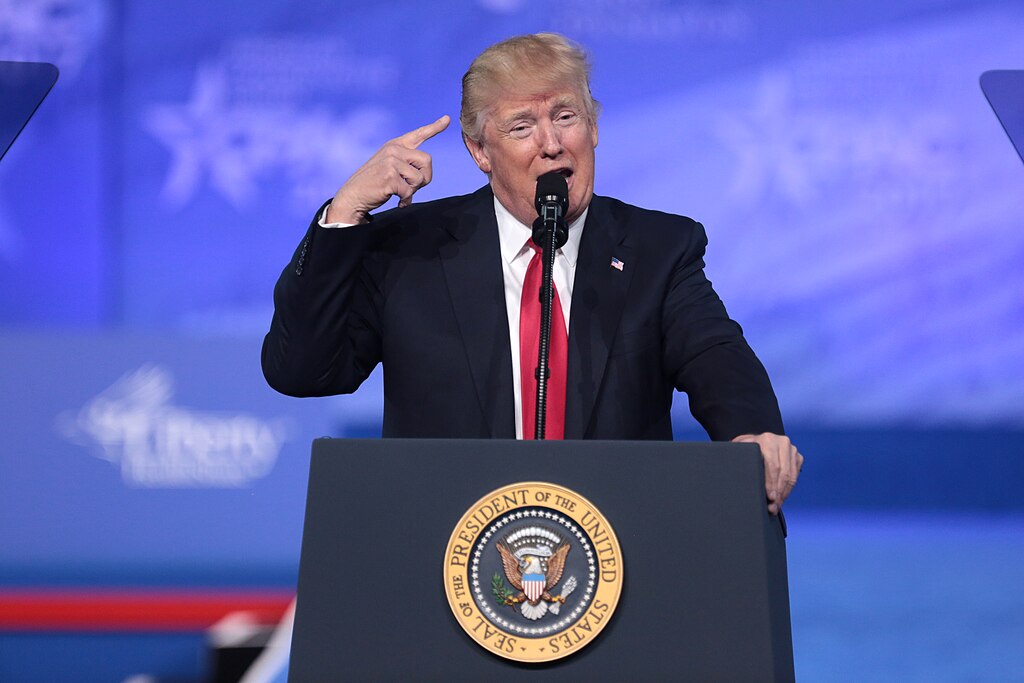 #News
#News
Trump’s tariffs make science more expensive in the US and could have a global impact
Protectionist measures raise research costs and threaten scientific supply chains amid rising trade tensions
 US President Donald Trump announced tariffs designed to reduce the country’s trade deficit and strengthen American industry, resulting in higher prices and uncertainty in science | Image: Gage Skidmore/Wikimedia Commons
US President Donald Trump announced tariffs designed to reduce the country’s trade deficit and strengthen American industry, resulting in higher prices and uncertainty in science | Image: Gage Skidmore/Wikimedia Commons
Since April 2025, science labs in the USA have been facing a new and unexpected challenge: a sudden increase in the costs of essential research equipment, reagents, and components.
The turmoil is the result of US President Donald Trump’s aggressive tariff policy, with taxes of up to 50% imposed on imported products, directly affecting global science supply chains.
According to a report by BBC News, the White House’s reasoning is that it wants to strengthen the national economy, protect jobs, and reduce US dependence on “foreign adversaries.”
Calling the tariffs a way to “revive American industry,” Trump said that “sometimes you have to take the medicine.”
Experts, however, have warned of a worrying side effect: the impact on science and innovation.
More expensive equipment, research in jeopardy
American laboratories rely heavily on international suppliers. According to the journal Science, China, Mexico, and Canada—the targets of the highest tariffs—supply a wide range of inputs, including pipettes, test tubes, LCD panels, reagents, and electronic components.
Other countries were also affected: Germany was hit with tariffs of 20%, Japan with 24%, and Switzerland with 31%, affecting high-tech products, such as microscopes, spectrometers, and DNA sequencers, as detailed in an article published in the journal Nature in March.
“These aren’t luxury items. They’re the core infrastructure of modern science,” Tinglong Dai of Johns Hopkins University told Nature.
Drew Kevorkian, CEO of scientific equipment supplier ARES Scientific, reported an immediate increase in costs: “We’re already doing quotes today that are 20% higher than they were yesterday.”
Far-reaching economic effects
The tariffs do not just affect science. According to BBC News, the import taxes could raise the prices of a range of consumer goods, from food to electronics.
The International Monetary Fund (IMF) has warned of the risk of a global recession and markets in Europe and Asia have already seen sharp declines.
The global production chain itself could be under threat. The same product can cross several borders before reaching its destination—this is the case with automobiles and scientific equipment, for example.
“Even US-made products often rely on imported components,” Dai points out.
One possible response would be to switch to domestic suppliers. But this is a slow process and not always feasible. “It’s not like flipping a switch. You need to be able to ensure quality and develop trust,” Canan Gunes Corlu, a supply chain expert from Boston University, explained to Nature.
And even with the new tariffs, importing could still be cheaper than buying locally. “Believe it or not, some imported products are still cheaper, even with the higher taxes,” Kevorkian said.
Adaptation strategies and future uncertainties
In the face of such instability, researchers are adopting defensive strategies.
Biologist Tony Gamble of Marquette University, Wisconsin, bought supplies in advance shortly after the election.
“I stocked up on computers, tips, gloves, and sample tubes. I’m glad I did it,” he told Science.
However, stockpiling is only a stopgap measure. Organizations such as the American Hospital Association have asked for exemptions for medical and pharmaceutical products.
The situation is expected to become even more complex, with possible new tariffs on European partners.
International tension and possible trade war
International responses were swift. China, hit by cumulative tariffs of 54%, retaliated by setting its own tariff of 34% on American goods.
The European Union is studying similar measures. Leaders of US allies, including the UK, Australia, and Japan, called the actions “unjustifiable” and “unfriendly.”
The American tariff increases are not entirely reciprocal.
In many cases, the percentages were calculated to eliminate the country’s trade deficit with other nations, even when those countries, like the UK, buy more from the US than they sell to it.
*
This article may be republished online under the CC-BY-NC-ND Creative Commons license.
The text must not be edited and the author(s) and source (Science Arena) must be credited.


